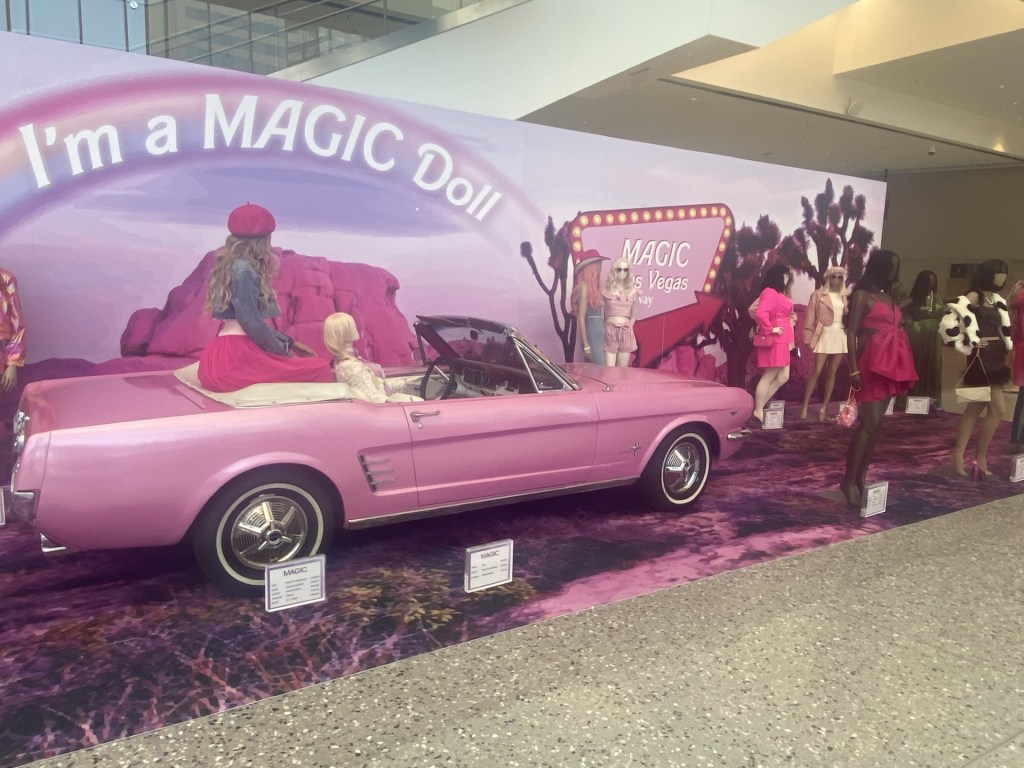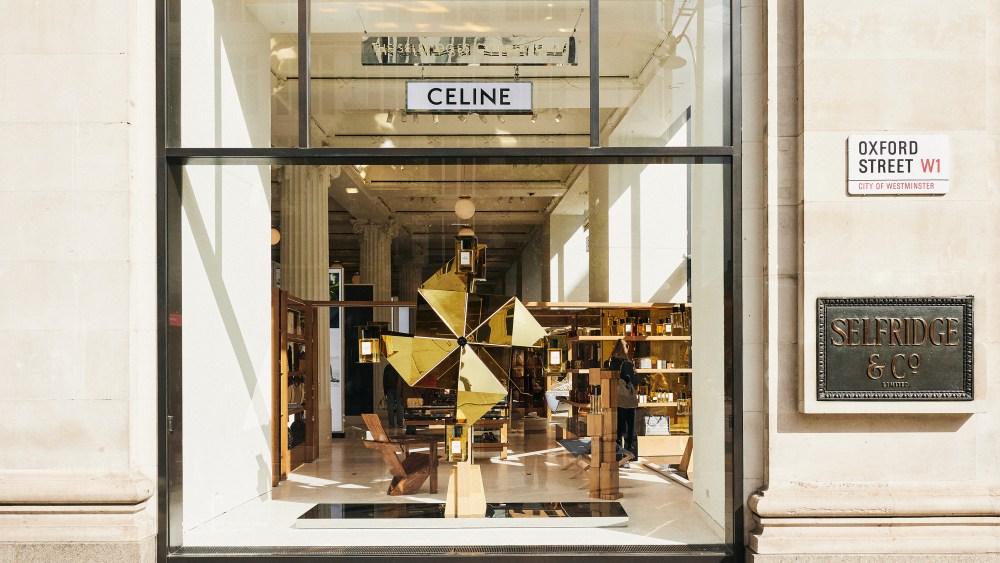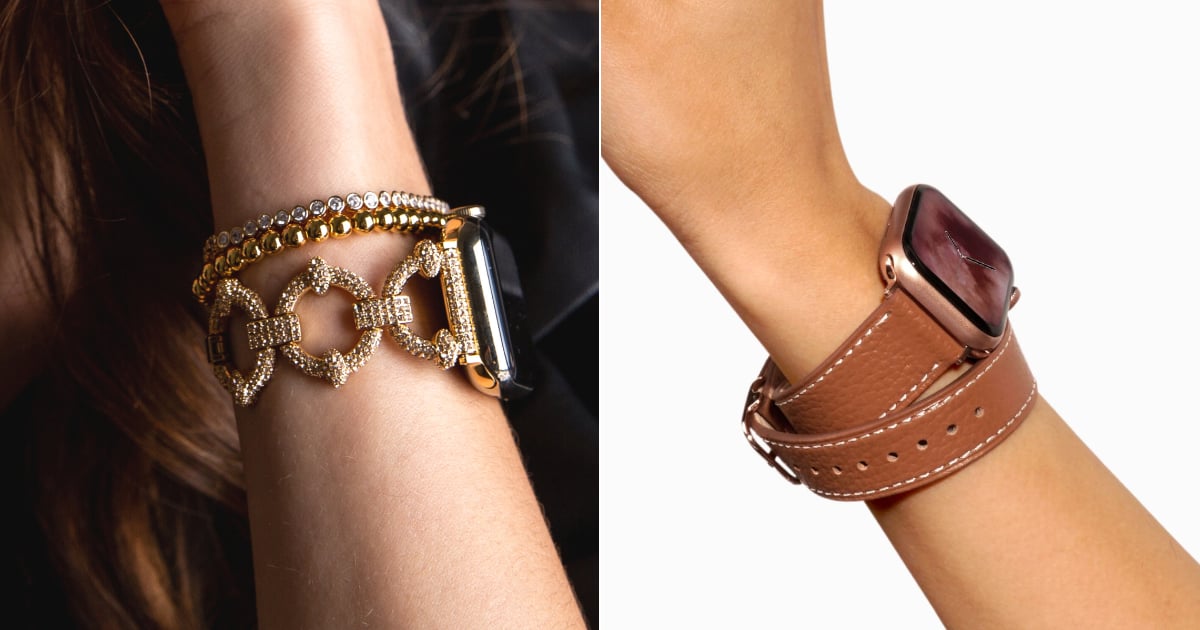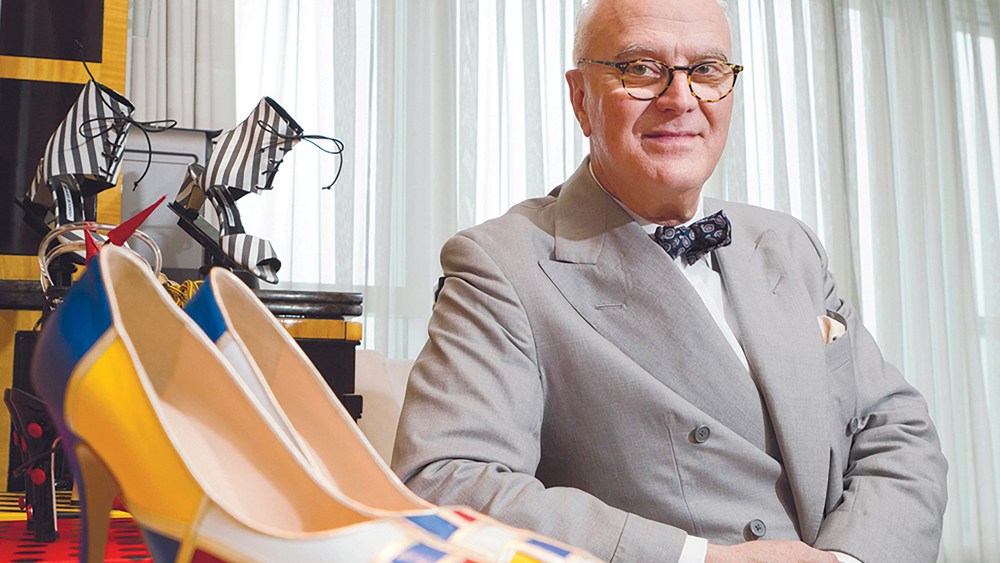The thermometer in Las Vegas might have been approaching 105 degrees, but the economic climate inside the big trade shows scattered across the Las Vegas landscape was a tad chilly.
This has been a tough year for retailers who were re-evaluating their inventory mixes and searching for trendy, must-have items as they wandered through the booths at MAGIC and Project at the Las Vegas Convention Center and at Las Vegas Apparel, a relatively new show at the World Market Center in downtown Las Vegas.
Dayna Mance, the owner of Prism Boutique, a casual women’s clothing store in Long Beach, California, south of Los Angeles, was inspecting racks of clothes at Project as she narrowed down her purchases for her 25- to 45-year-old customer. She expressed concern. “This has been one of our most challenging years in our 10-year history,” she said, noting her sales are off 33 percent compared to last year.
The COVID-19 pandemic helped her store rack up big sales as people shopped online. But now customers are out traveling far and wide and dining out in restaurants. “We are getting pickier and pickier with what we buy. I think the key to our success is inventory control, making sure we buy appropriately to make sales,” the boutique owner said.
She was purchasing mostly dresses and tops, which are some of the key items to have right now. For fall, she was selecting trendy sweaters, white prairie skirts and low-rise denim pants to be worn with midriff blouses. “I think high-rise pants are here to stay, but the younger girls are wearing low-rise pants,” she said.
Julie LoForti is another boutique owner trying to figure out how to spike sagging sales. Her revenues were down 37 percent from last year at her Bella Forte Boutique in downtown Turlock, a small farming community in northern California. “People are just cutting back on their purchases,” she said, noting that farmers in the area have been hit hard with record rainfall earlier this year that flooded farmland.
She is concentrating on her tried-and-true brands, like Kut from the Kloth (her number-one seller), 7 For All Mankind and Mother denim. “I’m shopping for spring, hoping the fourth quarter ends well, and picking up some extra pieces for fall,” she said.
Tony Chinn, chief executive officer of The Buying Agency, was scouting the shows with his team to find the latest apparel and accessories offerings for his clients. His Los Angeles-based crew hits all the major apparel trade shows across the country and scouts the Los Angeles fashion wholesale market to find great selling merchandise for his 12 accounts.
He sees a wave of trepidation through retail, but his goal was to find goods that are unique for his clients, which he said are doing well. His accounts include Bling Glamour, with 25 locations in the Midwest, and live-selling platforms that need merchandise “to feed the machine constantly.”

At the Project show, exhibitors also felt there was an air of concern among retailers. “Their business is down for sure,” said Elbert Chang, chief executive officer of LAMade Clothing, which manufactures all its women’s clothing in Los Angeles. That declining business has affected his revenue, down 50 percent this summer over last year.
To gain back customers, Chang said he reduced his wholesale prices by 15 percent. “That’s what it takes to get the right stores back,” he explained.
Chang also felt traffic at the show was down from previous years. He said he arrived Tuesday morning at the Las Vegas Convention Center parking lot nearest the Project exhibit hall, and it was only about one-third full. In previous years, it would be packed. “A lot of sales reps are telling me that stores had to shrink down after COVID[-19] and have less staff, which means they are like a one-person show,” he said. “It makes more sense for them to do a quick back-and-forth, one-day trip, or they are going more to regional shows.”
Despite cautionary tales heard around the show, Z Supply had two very large booths brimming with buyers, which has always been the case at Project shows. Z Supply, based in Costa Mesa, California, plays up its SoCal vibe with simple and casual clothes that are comfortable, trendy and affordable. They had 220 accounts visit.
“We have extremely loyal customers, and we take good care of them,” said Mandy Fry, co-owner and president of Z Supply. “We also don’t go into the department store world, which discounts prices, and that really supports our smaller retailers.”
She said Z Supply is in more than 3,000 boutiques across the country as well as larger chain stores such as Minneapolis-based Ever Eve with its 100 doors and ShopBop.com. The brand’s offerings include soft and trendy pocket T-shirts retailing at $34, a slub knit minidress selling for $69 and cargo pants priced at $119.
Over at MAGIC, which is a more young contemporary show, Barbie pink seemed to have invaded every booth in the cavernous space buzzing with activity. Still, many felt traffic was down from previous years, and store buyers were thinking twice about their purchases. “I have been coming here since 2015, and overall I feel the show’s foot traffic has declined,” said Nikki Williams, an account specialist with the Los Angeles-based young contemporary brand Lost + Wander.
“I feel our stores are being cautious for the rest of the year,” she observed. “But I feel they are building for spring.”
While Lost + Wander was wishing for more sales, business was brimming at Hidden Los Angeles, a blue jeans brand drawing a crowd with its creative camping scene display showing a tent, hammock, cloth tree and camping chairs made of denim. The label won first prize for best show display.

Edward Jun, head of denim sales, said his foot traffic was up 30 percent over last year, which might have been helped by the creative denim camping scene. However, he believes the 7-year-old brand is becoming better known. It sells at stores including The Buckle chain, based in Nebraska, and Altar’d State, headquartered in Tennessee. “I think our brand is getting bigger and bigger, and people are starting to know our jeans,” he said. “Our stores are doing very well. They are buying $40 jeans and selling them for under $100.”

At Project Men’s, the sound of skateboarders doing flipkicks on a ramp in the middle of the show floor reverberated through the building. Sprayground was doing custom airbrushed Ts.
Among all this activity was the Jaxson Maximus booth where Christian Boehm, the company’s founder and chief executive, was experiencing his second Project show. More than four years ago, he opened a high-end boutique in Miami carrying his own line among others. The size of a small grocery store, the boutique has a 12-seat barbershop, pool table, full bar and its own tailor shop.
Recently, he started selling his line of elevated but comfortable clothing and golf wear beyond his store. His goal at the show was to get in front of some key accounts not familiar with his relatively new brand. “Of the shows we have attended, this show is good when you put it into the context of good, better and best,” he noted. He had gained at least four new accounts and had Nordstrom stop by the booth. But he has definitely seen a wary store buyer looking for safe purchases. “I would put buyers on the cautious side,” he said.
Not far away, Antoine Tutt, president of sales in the U.S. for Coogi, the Australian colorful sweater brand, was busy. “This show has been great for us. This brand is on fire,” he said, noting he saw 25 to 30 stores in the first two days. “Of course, stores are being cautious, but luckily it is not affecting us. We are one of the brands they have to have.”
Next door at MAGIC Men’s, Stan Rudman’s company from Miami is a long-time attendee. His family has been coming to the show since the 1970s when his grandfather founded Sportailor, whose labels are Weekender, a casual collection of menswear, and Hook & Tackle, a fishing-oriented clothing line. Rudman, a principal owner of the company, remembers when exhibitors had extravagant two-story booths that sometimes included an upstairs bar. But new rules now limit booth walls to eight feet.
“The show has been very good for us,” Rudman said. “We were a little concerned because of the overlap with The Collective Show in Chicago, but we have a lot of buyers who love to come here. We see a different environment here. This is definitely the hub for major department stores.”
He and his crew had scheduled 40 appointments and opened 18 new accounts from mostly specialty stores. “We are doing a big job on our new linen shirt program for Weekender. Linen has taken off,” Rudman said.
Projek Raw, a Canadian casualwear company, also was having a successful show at MAGIC Men’s. “This had been very good for us,” said Steven Nightingale, sales director for the U.S., who said the company’s $79 bungee chino pant with stretch fabric has taken off. “There are a lot of independent businesses based on the West Coast that we normally don’t get to see. We find it’s good exposure for the brand.”



